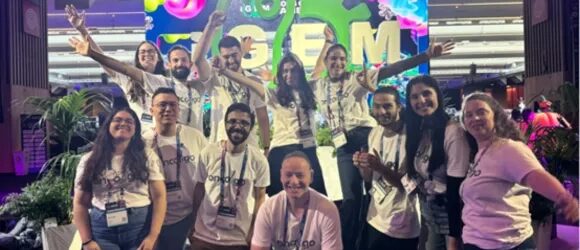For Developing an Innovative Strategy Toward a New Treatment for Advanced Lung Cancer
Tel Aviv University’s iGEM student team has won a gold medal at the prestigious international iGEM competition, held recently in Paris, France, for developing an innovative therapeutic strategy aimed at treating metastatic lung cancer – offering new hope for patients who until now had no effective treatment options. The project also reached the finals for Best Oncology Research and Best Model.
About the iGEM Competition
iGEM is a global competition in synthetic biology in which each team develops an innovative idea designed to solve a challenge in the field. Teams then implement the idea using engineering, biological, and computational tools in a process that resembles early-stage startup development.
This year, more than 400 teams from around the world participated.
At Tel Aviv University, the iGEM team is composed each year of students from diverse academic backgrounds—including engineering, life sciences, medicine, and exact sciences—who come together to conduct research in synthetic biology.
The Team’s Strategy: Confronting Five Central Challenges in Cancer Treatment
Under the guidance of Prof. Tamir Tuller from the Faculty of Engineering, this year’s team developed a strategy addressing five major challenges that must be overcome to achieve an effective treatment for metastatic lung cancer in particular, and for cancer more broadly:
- Drug delivery: One of the main challenges in the pharmaceutical world today is finding a strategy that enables transporting a therapeutic molecule directly to the target tissue.
- Incomplete eradication: It is rare for cancer treatments at advanced stages to destroy all cancerous cells. Even a small number of remaining cells can divide and eventually cause the cancer to return—often in a more aggressive form.
- Limitations of biological therapies: Most biological treatments identify cancer cells based on altered proteins that typically appear on the cell membrane. However, in many cases, cancer-driving mutations do not change the protein, or they change a protein that is not membrane-bound.
- Trial-and-error development: Unlike engineering fields, drug development today still relies heavily on trial and error.
- Patient variability: While pharmaceutical companies aim to develop drugs that can treat many patients, there is often high variability in the distribution of mutations among different individuals, making it difficult for standard strategies to provide a universal solution.
To illustrate these challenges, the team described the effort to overcome them as a chess match against cancer.
Their solution includes a DNA sequence that silences a cancer-related gene and is attached to an antibody capable of penetrating cancer cells. The various components were designed using a combination of diverse computational strategies and innovative algorithms.
From Competition Success to Real-World Impact
Following their success, the team submitted a patent application through Ramot – Tel Aviv University’s technology transfer company. A scientific paper describing the development will be published soon.
The team also prepared a comprehensive and detailed business plan aimed at bringing the product to market. Loza, a company operating in the international pharma and biotech sectors, was impressed with the project and contributed to the team.
Educational Outreach: National High-School Competition
In collaboration with the ORT high-school network, the team organized a national synthetic biology competition for high-school students, with hundreds of participants.
Team Members
Shir Shance (Captain, Faculty of Life Sciences),
Idan Eyni Galanti (Captain, Faculty of Engineering),
Michael Kovaliov (Head of Modeling, Faculty of Exact Sciences),
Ester Buderovsky (Head of Biology, Faculty of Medicine),
Ariella Nouman (Faculty of Engineering),
Gal Aziel (Faculty of Medicine),
Niv David (Faculty of Engineering & Faculty of Life Sciences),
Roni Zarkhovsky (Faculty of Engineering & Faculty of Life Sciences),
May Lieber (Faculty of Engineering),
Din Saadon (Faculty of Engineering),
Hillel Charbit (Faculty of Exact Sciences),
Dr. Daniel Dovrat (Team Advisor, Faculty of Engineering).
The iGEM steering committee included Yair Sakov from the TAU Innovation Center, the team from Startup Nation Central, and Professors Martin Kupiec, Avigdor Eldar, Uri Gophna, and Itai Benhar.
Prof. Tuller: “The Team Was Outstanding”
Prof. Tuller concludes:
“This year’s team was remarkable by every measure. I believe that their developments—including the models and software—will influence not only the field of lung cancer, but also other types of cancer, genetic diseases, and basic research in molecular biology and medicine. I would like to extend special thanks to the Startup Nation Central team, who helped train the group in entrepreneurship at the highest level.”
